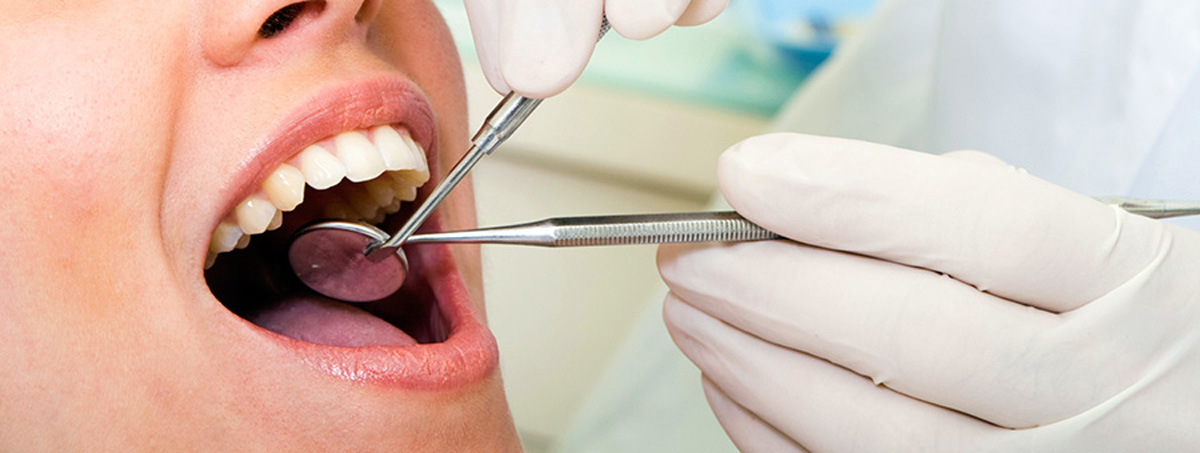
Dental Cleanings Las Vegas
Las Vegas dental cleanings are the cornerstone of maintaining your smile. You can brush and floss your teeth every day, but that’s not enough to ensure you have a beautiful smile for the rest of your life. Unfortunately, many people avoid regular dental cleanings because of fear or anxiety and this can lead to bigger problems down the line. Most people don’t know if they have a cavity or have developed gum disease until it’s far too late to treat the problem easily. At ABC Dental Care in Las Vegas, Dr. Khorshid and his staff understand this anxiety and strive to provide a calm and relaxed environment for all patients.
Why Are Professional Dental Cleanings Important?
Brushing and flossing are important, but they are not enough to maintain good oral health. Every time you eat, plaque forms on your teeth. Plaque is a sticky, yellowish substance made up bacteria. You remove some plaque when you brush and floss, but some of it sticks around no matter how thorough you are. Additionally, saliva, which helps to break down food when you chew and also helps strengthen your teeth, can cause a buildup of calcium on the outside of your teeth. All of this build-up needs to be removed in order to prevent tartar, decay and gum disease.
What To Expect At A Dental Cleaning
Knowing what to expect from your visit can ease some of the anxiety of a dental cleaning. The actual process of a professional cleaning is called “prophylaxis” or may be referred to as “scaling and polishing.” This is performed by a dental hygienist and is far less intimidating than it sounds. The hygienist uses special equipment to remove the buildup of calcium, plaque, and tartar (scaling) and then polishes the teeth to a smooth surface.
The first instrument you’re likely to see during your cleaning is a tool that uses ultrasonic vibration to remove tartar from the surface of the tooth. It is an electric tool, so it does make a noise, which can sometimes make patients anxious. The noise of the tool often seems louder than it really is because it’s held so close to your face, but if you ask your hygienist to show you how the tool works, you can ease some of your fears. The surface of the tool is very soft, much like your electric toothbrush at home, and should not cause any pain.
The second step in the cleaning involves removing smaller deposits of tartar with small, hand-held tools that are curved to match the shape of a tooth. The hygienist will gently scrape off any remaining tartar deposits from the teeth.
Finally, the teeth are polished with a tool that closely resembles an electronic toothbrush. It has a round head that moves in a circular motion. The hygienist will scoop a bit of special toothpaste into the instrument and polish the teeth to a smooth finish.
Some patients elect to have a fluoride treatment after their dental cleaning. Fluoride comes in lots of different flavors, and patients can choose which they like best. A gel or foam is placed into a small dental tray which is held in the mouth for 30 seconds. Fluoride treatments are important to help strengthen teeth, especially those that have been covered in tartar for a while.
Once the hygienist is done with the cleaning, the dentist will come in and examine your teeth and let you know if you have any cavities, gingivitis (gum disease) or if any follow-up treatments are necessary.
Do Dental Cleanings Hurt?
Professional dental cleanings are not designed to cause pain or discomfort. If you haven’t been to the dentist for a while, your cleaning may take a little longer than a typical visit, but it shouldn’t be painful. Instruments are designed for comfort as well as function, and hygienists are taught to use gentle but effective motions.
If you have pain before you arrive at the dentist, let the hygienist know as soon as you sit in the chair. If you are nervous, ask your dental hygienist to walk you through each step of the cleaning. Ask questions along the way, and if you do experience discomfort, or even if you’re just a little anxious, say something right away.
Some patients will experience bleeding gums during their visit, especially if they have not been to the dentist in many years or if they do not practice good brushing and flossing habits at home. The good news is that the better you care for your teeth at home, the easier your next visit will be.
